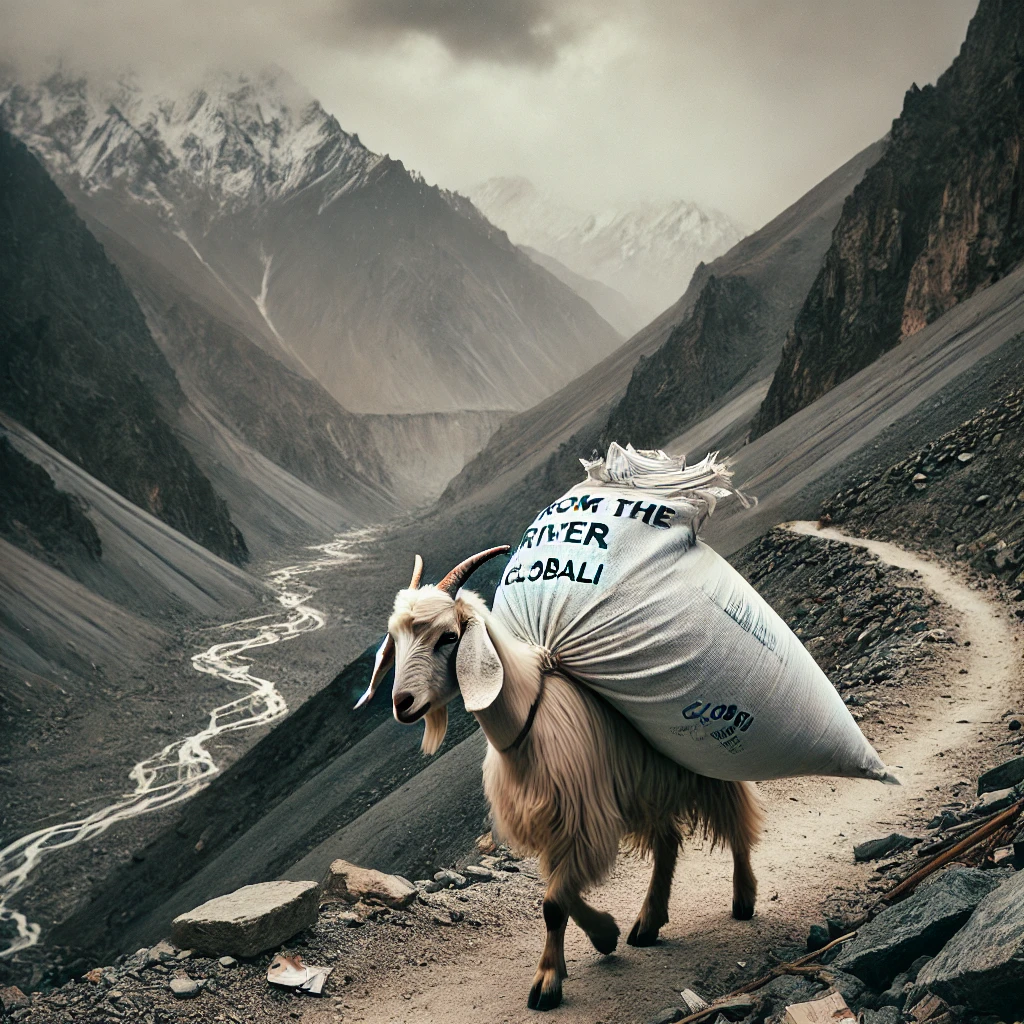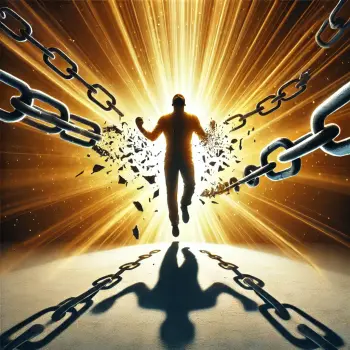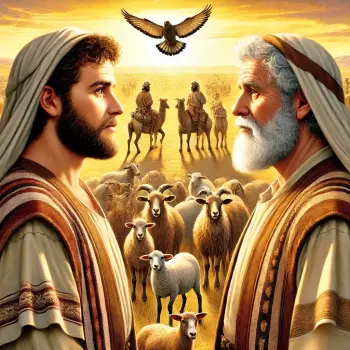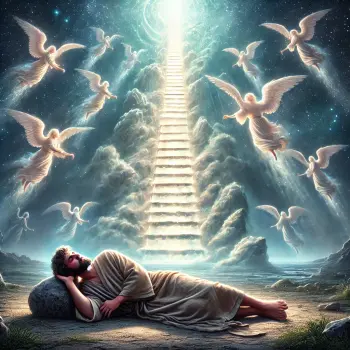
This year I feel like a goat. Not in the sense of wanting a curry or a stew for dinner or of feeling a kinship with Simone Biles, Michael Jordan, or Muhammad Ali. But, as Yom Kippur approaches and I try to draw inward for reflection, the din and distractions of the world around me disturb my attempts at achieving revery. Any perusal of social media, news, or email brings word of some new or continuing protest against Israel, or Zionism, or Jews, or sometimes all 3 together. The goat in question is one of the two mentioned in Leviticus 16, the traditional Torah reading for Yom Kippur morning. Lots are drawn and one goat is designated for God, the other for Azazel. The one for God is sacrificed as a sin offering for the people (after the sacrifice of a bull as a sin offering on behalf of the house of Aaron) and the other will be set free and sent into the wilderness, presumably to die. Prior to releasing the goat, Aaron, the high priest, placed his hands upon the goat’s head and confessed the iniquities and sins of the Israelites and symbolically transferred them to the goat. Bearing these transgressions the goat is then led out to the wilderness to Azazel.
Who, what, or where is Azazel? On that, there is little agreement. It might take a series of columns to go through all of them, but the most common are the reference to a steep, rocky place, where the goat would fall and meet his fate; a malevolent spirit or demon inhabiting the wilderness; or a compound noun consisting of ez (goat) and azal (sent away). It is this last understanding that William Tyndale utilized in the first English translation of the Bible from the original Hebrew sources. He coined the term, “scapegoote”, to refer to the goat that escaped.
What is a scapegoat?
A scapegoat has come to mean a person who is blamed for the mistakes, faults, or wrongdoings of others. It is the eternal “them”. You know, it’s their fault, it’s all because of them and only them. In the original Biblical context, the goat wasn’t being blamed for anything, he just happened to be at the wrong place at the wrong time, much like the ram in the story of the binding of Isaac. [I can imagine some doctoral thesis addressing the High Holy Day readings entitled, “Probability and Bovine and Caprine Sacrifice in the Ancient Near East.”] And most importantly, the goat can only symbolically carry away the transgressions and iniquities the priest has confessed or that the people have admitted to. Regrets of wrongdoing have to be verbalized; they can’t merely be a vague notion residing in the back of someone’s mind.
So, why am I feeling like a goat this year? It feels like every misdeed of humanity has been piled upon Israel and subsequently, the Jewish people. Do I feel that Israel is beyond criticism, an absolute paragon of virtue? No, I have frequently critiqued Israel, criticized groups within the country, and disagreed vociferously with governmental policies and positions. I happen to follow the same pattern in this country for Republicans and Democrats alike. What has been happening over the past year runs much deeper than a profound disagreement over policy.
I might not believe that the Maduro government is the legitimately elected government of Venezuela, but I still think that Venezuela should continue to exist as a country. I think that China’s treatment of the Uighurs is criminal, but I haven’t called for China to be kicked out of FIFA. Mali’s use of troops from the Wagner group to maintain order troubles me greatly, but I haven’t called for it to be taken over by Burkina Faso.
Suffering we might have overlooked
People have a right to protest for any cause or against any group they choose. It seems disingenuous to focus on deaths in Gaza that have occurred as a result of Hamas members hiding among the civilian population, offering those very civilians no access to shelter, and continuing to fire rockets into Israel, all after a massacre that Hamas initiated, while ignoring other tragedies around the globe that have led to greater or equal pain, suffering and death.
Sudan has the largest refugee crisis in the world with almost 10 million people displaced, almost 18 million people facing starvation, and an unknown number of people killed. Where are the banners? The encampments? The marches?
The eastern part of the Democratic Republic of Congo has been in conflict for almost 30 years with approximately 6 million dead. In this year alone, another 6 million have been internally displaced and over 25 million people require humanitarian assistance. One would think that this degree of suffering would spark international outrage, but the world has been silent.
Haiti has been without a functioning government for several years now. Armed gangs roam freely through the streets, controlling half of the country and 80% of Port-au-Prince. Reports of gang rapes and mass killings go unprosecuted. The healthcare system is on the brink of collapse and over half the country suffers from food insecurity. Where are the voices demanding justice for Haiti? How many people have retweeted #Eyes on Port-au-Prince?
Yes, there should be concern about the deaths and injuries to the innocent on both sides of every conflict. And yes, the deaths and injuries to children, women, and non-combatants are a tragedy. But in all the calls for a cease fire, in all the calls for restraint, in all the calls for an end to aggression, how many demanded an end to missile fire, a confiscation of weapons, and a return of the hostages?
Not only has the world been focused solely on the conflict in Gaza (and the West Bank) and Israel’s reactions to 13,200 rockets from Gaza; 12,400 from Lebanon, 400 from Iran, 180 from Yemen, and 60 from Syria, many have decided that not only should Israel not have the right to self-defense, but it simply no longer has the right to exist.
Policy or Identity?
Chants of “from the river to the sea” and “long live the intifada” are ubiquitous. “Zionists deserve to die” is a familiar refrain. Calls for the removal of Jewish student groups from universities continue to grow. And synagogues, communal institutions, Jewish owned businesses, Jewish politicians, Jewish celebrities, and average Jews on the street and their supporters have been targeted by protests, vandalism, and violence. One’s position on Zionism has become a litmus test for publication, lectures and performances, and free movement on college campuses. The attacks have moved well beyond biased attacks on Israel’s actions to attacks on identity. These attacks aren’t focused on what you do or who you support, but who you are. Regardless of any nuanced stance you might have on Israel, the peace process or the Middle East, merely acknowledging the legitimacy of the Jewish state and the right of Israel to exist and continue is sufficient to cancel you and sentence you to a life of oblivion, if not purgatory. For many this means that you are not to be believed, trusted, or fit to participate in society.
The pattern of scapegoating and singling out the Jewish people or Israel for the problems of the world is not new. Whether it was the Black Death, the defeat of various European countries obviously caused by internal treachery, the rise of communism, the spread of capitalism, or dozens of other examples, the Jews have always been the outsider to whom the finger of blame could be pointed. I used to think this was merely a lesson from history that was safely buried in the past, but I see that from both the right and the left today, it remains very much alive.
And so, I feel kinship with that ancient goat. It feels like the world is emptying its pockets of every flaw and foible they find and placing it squarely upon my back and that of Israel and the Jewish people. Burdened not only by my own shortcomings but bearing the vitriol and vituperations, willful misinterpretations and wanton disregard for facts, that crash on top of me is how I have experienced this past year and the High Holy Day season.
Yom Kippur is a time for self-reflection, for looking deeply into the flaws in one’s thoughts, words, and actions, enunciating where you missed the mark, and resolving to be better in the year ahead. I plan to continue to look inward and work to fix the errors that I find. It would be time well spent for the rest of the world to adopt this practice as well.
G’mar chatimah tovah. May we all be sealed for a better year ahead.

















